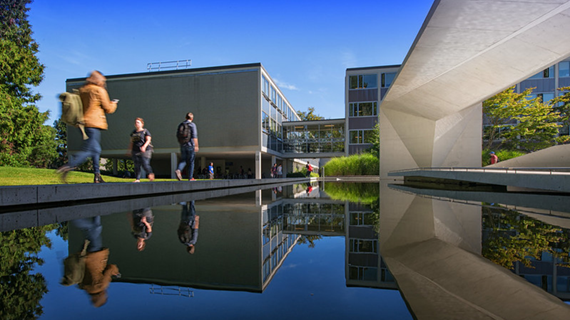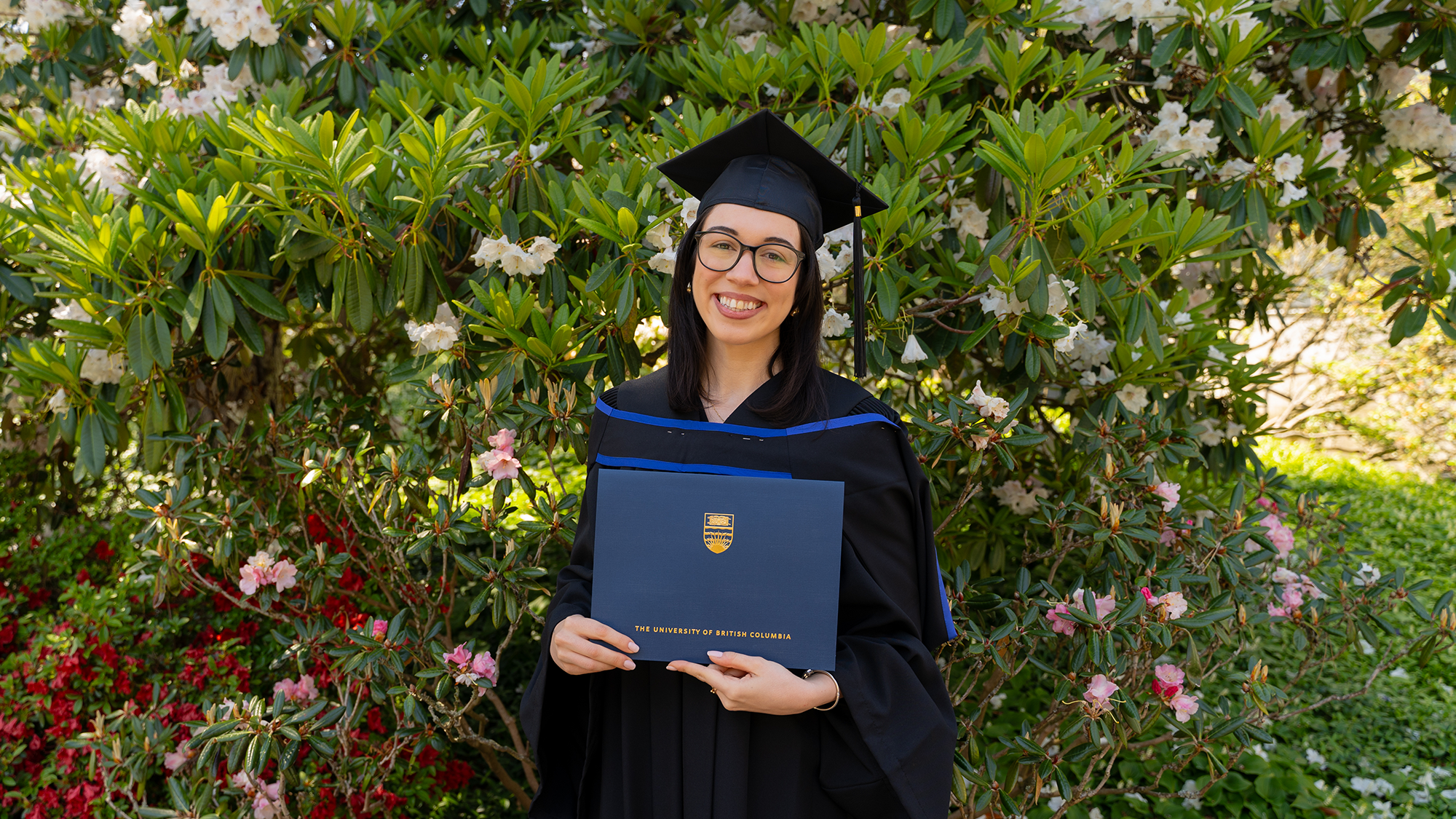

Our Arts faculty members are sharing their expertise on various topics! Some of the topics that they are discussing include a Black neighbourhood of Africville, the possibility of using raccoons for weather prediction, and ways to measure happiness. We will keep updating the list throughout the month, so make sure to check back in for more interesting discussions!
Department of Anthropology
Lack of capital continues to restrain Indigenous tourism growth | Dr. Jennifer Kramer said it is important for Indigenous people to represent themselves and their own cultures. (Business in Vancouver)
Department of Central, Eastern, and Northern European Studies
Surrey schools pull To Kill a Mockingbird and other books from recommended reading curriculum | Dr. Florian Gassner remarks that the people who have the most power over the cultural identity of a nation are the people who determine the literature curriculum. (Vancouver Sun)
Department of English Language and Literatures
Are Wiarton Willie’s Groundhog Days numbered? Why it’s time to fear the raccoon’s shadow | Dr. Daniel Heath Justice commented on the possibility of looking to raccoons to predict the weather instead of groundhogs. (Toronto Star)
Department of Geography
A weird winter just upended the world’s biggest freeride competition | Dr. Michele Koppes comments that B.C. is experiencing unusual warmth and less snow than normal. (Outside)
This clinic for gender-affirming health care went private. The founder wishes it didn’t have to | Dr. Avery Everhart and Nursing professor Dr. Elizabeth Saewyc commented on the impacts of politics on gender-affirming care. (CBC Radio)
Department of History
On Africville, the razing and the racism | Dr. Tina Loo commented on the historically Black neighbourhood of Africville that was demolished by the government of Nova Scotia in the 1960s. (The Globe and Mail)
Why choosing the right historical approach to the Israeli-Palestinian conflict matters | Dr. Jessica Hanser wrote about the history of the Israel-Palestine conflict. (TIME)
Controversial comments from MLA Robinson about the history of Israel and Palestine| Dr. Hicham Safieddine discussed the history of Israel and Palestine. (CBC On the Coast)
Online harms bill will force transparency, add costs for tech platforms, experts say | Heidi Tworek comments the costs posed on tech companies by Ottawa’s new online harms bill is reasonable given the potential harm to users. (The Globe and Mail; subscription required)
Department of Philosophy
The new polyamory movement: Even longtime marrieds are doing it | Dr. Carrie Jenkins discussed polyamorous relationships. (National Post)
Department of Political Science
The political fallout from B.C. MLA Selina Robinson’s comments | Dr. Gerald Baier commented on the political implications of the removal of MLA Selina Robinson as the minister of advanced education following her comments on Palestine. (City News)
On Surrey and Vancouver, policing and park board, and referendums vs. lawyers | Dr. Gerald Baier explained why politicians often opt for legal challenges over referendums to determine the fate of controversial political decisions. (CBC Vancouver Metro Matters)
2 of 3 local First Nations now support plan to abolish Park Board | Dr. Stewart Prest commented on Vancouver city council’s decision to abolish the park board. (City News)
With aging U.S. presidential hopefuls, how much will their running mates matter to voters? | Dr. Paul Quirk commented on the age of the U.S.’s presidential candidates. (CBC News)
Global political stands come with risk and reward for local B.C. politicians | Dr. Stewart Prest commented on Canadian politicians taking a stance on global issues. (Today in BC)
Albertans will pocket the biggest carbon price rebates this year | Dr. Kathryn Harrison commented on Canada’s carbon price rebate. (National Observer)
Japan to launch world’s first wooden satellite to combat space pollution | Dr. Michael Byers co-conducted a study which found that aluminium from re-entering satellites could deplete the ozone layer which protects the Earth from the sun’s harmful radiation. (The Guardian)
Can Joe Biden be replaced? Senior Democrats face tough decision | Dr. Paul Quirk commented on the age and cognitive abilities of the U.S.’s presidential candidates. (Newsweek)
B.C. finance minister previews increasing deficit ahead of 2024 budget release | Dr. Stewart Prest said B.C.’s 2024 budget can either focus on quick wins for the NDP government or on long-term sustainable solutions that may not make headlines right away. (City News)
Claws come out for federal minister who shared picture of lobster lunch in Asia | Dr. Stewart Prest comments government officials should clearly distinguish between professional obligations and personal enjoyment when communicating with the public. (City News)
Alberta municipalities wary of divisiveness of party politics | Dr. Stewart Prest explained the differences between Alberta and B.C.’s municipal governments. (The Globe and Mail; subscription required)
Legislation for municipal political parties in large Alberta cities ‘very likely,’ says premier | Dr. Gerald Baier explained the differences between Alberta and B.C. municipal governments. (CBC News)
Department of Psychology
Are you happy? New film follows a Bhutan bureaucrat who asks 148 questions to find out | Dr. Elizabeth Dunn discussed ways to measure happiness. (NPR)
The science of happiness comes under examination | Dr. Elizabeth Dunn and graduate student Dunigan Folk found through a study that some activities people associate with happiness lack scientific evidence to prove they actually boost your mood. (El País)
They had to break the law to try to save humanity | Dr. Kimberley Brownlee commented on climate activists Howard Breen and Melanie Murray using a “defence of necessity” in court for engaging in civil disobedience against agents of climate crisis. (The Tyee)
Low income-support programs pushing people into homeless encampments | Dr. Jiaying Zhao comments providing more money to the poorest and most vulnerable populations may help to curb homelessness and save taxpayer money in the long run. (The Globe and Mail)
Can TikTok’s ‘orange peel theory’ gauge if your relationship is healthy? | Dr. Samantha Dawson discussed the effectiveness of TikTok’s “orange peel theory” which supposedly gauges if your relationship is healthy. (CBC Vancouver)
Department of Sociology
Anti-Israel protesters target Vancouver mayor’s house | Dr. David Tindall commented on protesters rallying outside Vancouver Mayor Ken Sim’s house. (Business in Vancouver)
Foreigners, “scapegoats” for the housing crisis for experts | Dr. Nathanael Lauster commented on Ottawa extending the ban on foreign ownership of Canadian housing. (Radio-Canada French)
Cousins are disappearing. Is this reshaping the experience of childhood?| Dr. Yue Qian comments extended family is important as it is a valuable source of social support, especially for disadvantaged minority families. (CBC News)
Is it ethical to resell thrifted items? | Dr. Amy Hanser discussed the ethics of reselling thrifted items online. (CBC Vancouver)
Dating in the digital age: What influence does it have on relationships? | Dr. Yue Qian led a study which found that online dating promotes relationships between people of different education levels and those of different immigrant status. (Vancouver is Awesome)
What queer intergenerational couples know | Dr. Tony Silva commented on age-gap relationships between adults. (Them)
School of Economics
Former Bank of Canada deputy governor Beaudry sees first interest rate cut in July | Dr. Paul Beaudry comments that he expects the central bank to start cutting interest rates in July, which is later than markets are currently predicting. (The Globe and Mail; subscription required)
Men are more likely than women to want kids, study says. But has that always been true? | Dr. Marina Adshade commented on a new study which suggested that it’s childless men, not women, who are more likely to say they want to be parents someday. (CBC News)
A controversial idea at the heart of Bidenomics | Dr. Réka Juhász discussed industrial policy in the U.S. (NPR)
School of Music
If Alicia Keys’s voice cracks at the Super Bowl, but it’s edited out, did it even happen? | Dr. Robert Komaniecki commented on the official NFL YouTube channel editing out Alicia Keys’ voice crack during her performance at the Super Bowl. (CBC News)
School of Public Policy and Global Affairs
The collapse of NuScale’s project should spell the end for small modular nuclear reactors | Dr. M.V. Ramana wrote that nuclear power cannot solve the climate crisis as nuclear reactors are very expensive and take a long time to build. (Utility Dive)
Virginia utilities seek unbridled rate adjustments for unproven small modularnuclear reactors in two new bills | Dr. Allison Macfarlane co-authored a study which found that small modular reactors can produce more radioactive waste than conventional ones. (Inside Climate News)
Exploding Alberta’s myths about small nuclear reactors | Dr. M.V. Ramana comments small nuclear reactors are very expensive and take a long time to build. (The Tyee)
AtkinsRéalis, Atomic Energy of Canada to partner on development of new Monark nuclear power reactor | Dr. M.V. Ramana remarkts regulators must carry out a rigorous review of new nuclear reactor models to ensure they are safe. (The Globe and Mail; subscription required)
School of Social Work
Hong Kong asylum applicants suddenly shun Canada. What’s happening? | Dr. Miu Chung Yan discussed possible factors that could have caused asylum applications from Hong Kong asylum to plummet. (Hamilton Spectator)
B.C. adds 717 more $10-a-day child care spots across province| Researchers conducted a study which found that B.C.’s $10-a-day child care program lacked enough spaces to meet demand and failed to prioritize allocation to those most marginalized. (Global News)


